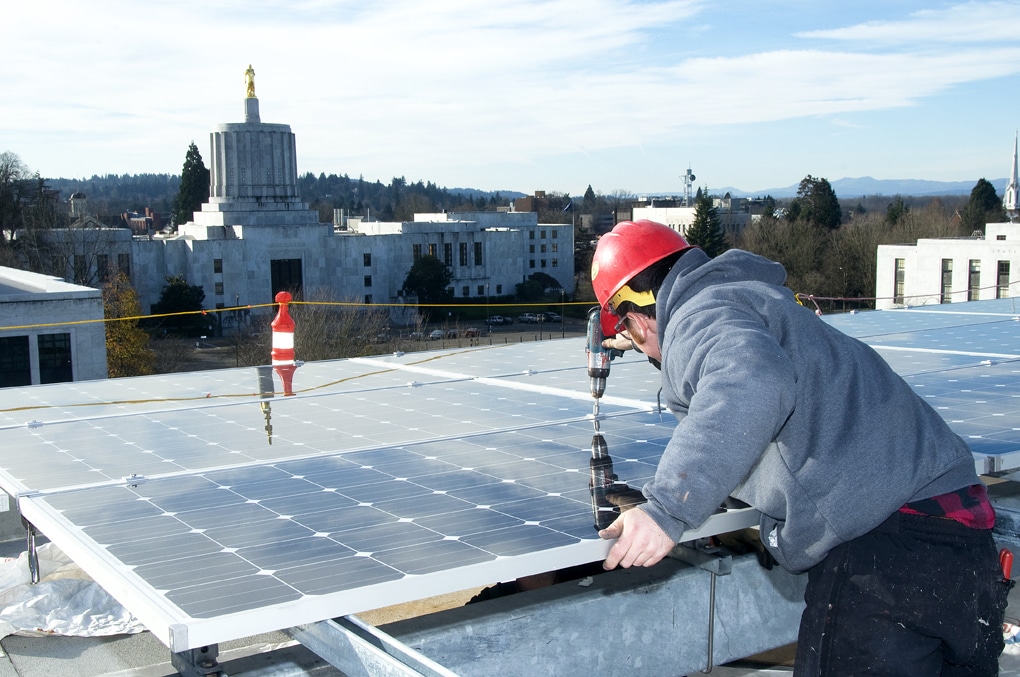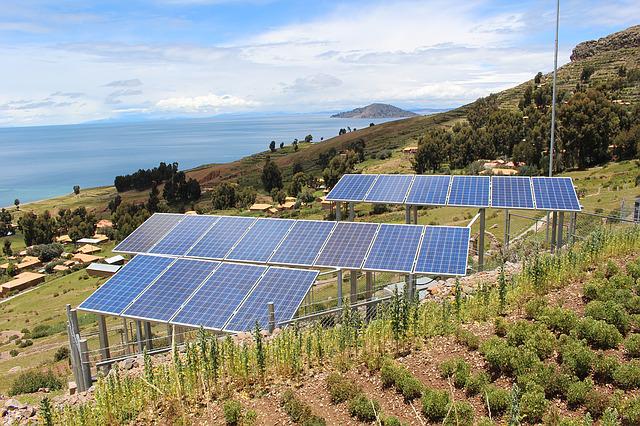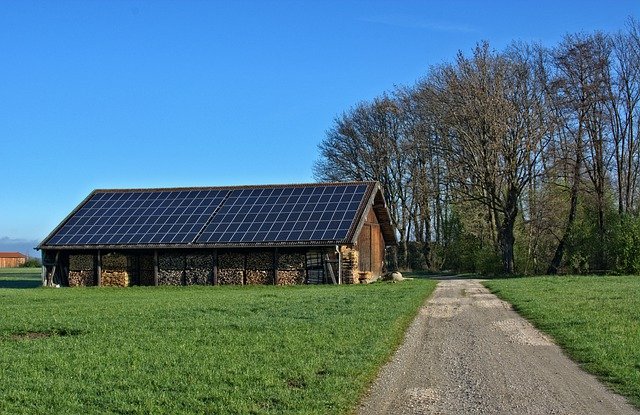Do Solar Panels Produce AC Or DC?
Solar panels are devices that transform sunlight into electrical energy. A panel is made up of several individual solar cells that are linked together. Solar panels can power many devices, from small handheld calculators to houses. But how do they work?
Solar panels produce DC electricity by conversion of energy in sunlight into a current. This process is known as the photovoltaic effect. It occurs when certain materials, such as silicon, are exposed to sunlight. The photons in sunlight knock electrons loose from their atoms, and these free electrons flow through the material to create an electric current. The solar cells in a panel are arranged to capture as many of these photons as possible and generate a strong electric current.

Introduction to Solar Panel Technology
A solar panel produces electricity from the sun. Solar cells are devices that convert sunlight into electricity; a solar panel comprises these cells. A solar panel produces electricity when sunlight hits the solar cells and causes them to produce an electric current.
In the solar industry, solar panels are also known as photovoltaic (PV) panels. A PV panel is a collection of connected solar cells that convert sunlight into direct current (DC) electricity. Investing in solar energy is a great way to reduce your carbon footprint and save money on your energy bills. Solar panels are a clean, renewable energy source that can help power your home or business.
Solar panels have been used for years to power homes and businesses off the grid. Solar panel technology has come a long way in recent years, making them more efficient and affordable than ever. If you’re considering going solar, you should know a few things about how solar panels work and the different types available.

This current is then fed into an inverter, which converts it into alternating (AC) electricity. AC electricity is the kind of electricity used in our homes and businesses. You can use it to power lights, appliances, and other electrical devices from there.
So, in answer to the question “Does solar panel produce ac or dc?” the answer is that solar panels produce DC electricity, but this is converted into AC electricity by an inverter before it is used in our homes and businesses.
What are AC Solar Panels?
AC Solar panels are a type of solar panel that uses alternating current (AC) to convert sunlight into electricity. AC panels are more efficient than their DC counterparts, and you can use them in various settings, including residential and commercial applications. AC panels are also less expensive to install and maintain, making them a popular choice for those looking to go green. While AC panels have many benefits, they are not without their drawbacks.
One downside is that AC panels cannot be used with batteries, so DC panels may be a better option if power outages are a concern. Another potential drawback is that AC panels can produce unwanted electromagnetic interference, disrupting electronic equipment. Despite these downsides, AC panels offer a number of advantages that make them a popular choice for those looking to switch to solar power.
What Is The Difference Between AC And DC?
The most basic answer is that Alternating Current (AC) flows in one direction for part of the time, then changes direction and flows in the other direction for the remainder of the time. In contrast, Direct Current (DC) flows in only one direction.
How is this difference significant? This means the AC will constantly change voltages while the DC will maintain a constant voltage. The result is that devices that use AC can be made smaller because there is no need to store energy (in the form of a magnetic field), as is required with DC devices. Another advantage of AC over DC is that it can be transmitted over long distances with little loss using transformers.
However, there are some applications where DC has certain advantages over AC. For example, transistors in electronic devices such as computers do not work well with AC, so a DC power supply is used. You will also find DC used in some welding and electrolysis applications because a constant current is required for these processes.
The main difference between AC and DC currents is that AC changes its voltage regularly while DC maintains a constant voltage. As a result, alternating current can be transmitted more efficiently over long distances than direct current. However, the direct current has certain advantages in electronic applications.

Which Is More Efficient In Solar Power – Direct Current (DC) Or Alternating Current (AC)?
The answer to this question depends on a few factors. For example, AC is the standard for household and commercial use, while DC is more common in automotive applications. Each has its benefits and drawbacks.
AC is an alternating current, which means that the direction of the current reverses itself periodically. This makes it well-suited for long-distance transmission, as you can easily convert it to high voltages for power lines. AC is also less expensive to produce than DC. However, it is not as efficient for powering electronic devices, as the power must be converted from AC to DC before you can use it.
DC, or direct current, flows in one direction only. It is, therefore, more efficient for powering electronic devices, as there is no need to convert the power first. Additionally, DC can be stored in batteries, making it a good choice for portable devices. However, DC is more expensive to transmit over long distances than AC, as it cannot easily convert to high voltages.
So, which is better? It depends on your needs. DC may be the better option if you are looking to power electronic devices or store power in batteries. If you need to transmit power over long distances, then AC may be the better choice due to lower energy losses.
Wrapping Up
In conclusion, DC solar panels are more efficient for powering electronic devices or storing power in batteries, while AC solar panels are more efficient for transmitting power over long distances. Ultimately, the best choice for you depends on your specific needs.
You can also read:
How Do Solar Companies Make Money?
What Is The Best Apartment Heating System? Top 5
Automate Hot Water Baseboard Heat with Programmable Thermostats
10 Solar System Benefits That Change The Way You Live
